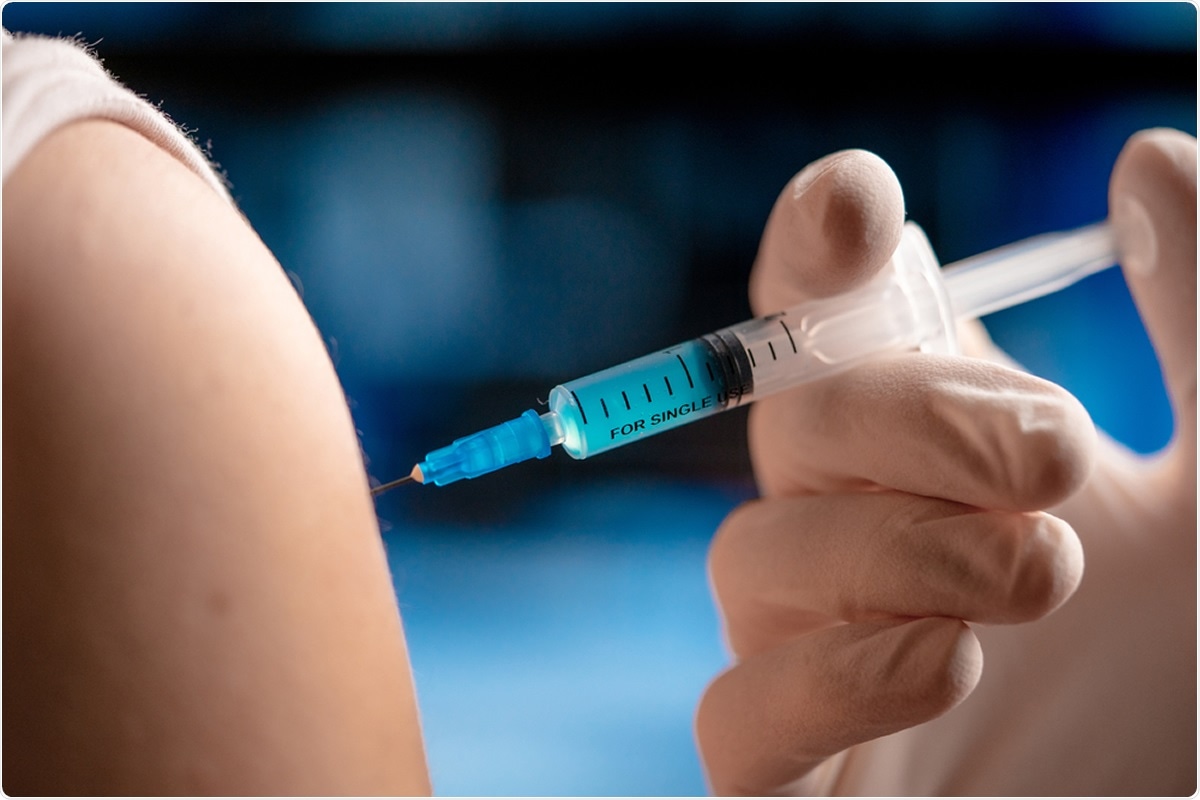Researchers from the United Kingdom have published their views on the inclusion of pregnant women in clinical trials for vaccines against the novel coronavirus and the related challenges this presents. Their article titled, “Inclusion of pregnant women in COVID-19 vaccine development”, was published yesterday in The Lancet Infectious Diseases.
Researchers Paul T Heath and Kirsty Le Doare, from Pediatric Infectious Diseases Research Group and Vaccine Institute, Institute of Infection and Immunity, St. George’s University of London, worked with Asma Khalil from Vascular Biology Research Centre, Molecular and Clinical Sciences Research Institute, St. George’s University of London to write this review piece with the available evidence.

Image Credit: Akaberka / Shutterstock
The pandemic and vaccines
The pandemic caused by the severe acute respiratory syndrome coronavirus 2 (SARS-CoV-2) has infected over 20.45 million people around the world and claimed over 745,000 lives as of today. There is a global race to develop an effective and safe vaccine against the novel infection. The development of the vaccine involves clinical trials with healthy volunteers. This study was about the inclusion of pregnant women in such trials.
Pregnant mothers and COVID-19
The team wrote about the spread of the virus across the world until it was declared a pandemic on 11th March 2020 by the World Health Organization (WHO).
They explained that there is still inadequate scientific literature on the effect of the virus and COVID-19 on pregnant women, unborn fetuses, and infants. From available scientific articles, they found that the incidence of preterm births (before 37 weeks of gestation) was to the tune of 22 percent among pregnant women who were COVID-19 positive. The rate of Caesarean delivery among COVID-19 positive cases was 48 percent they write.
The rate of admission of COVID-19 positive pregnant mothers in the intensive care unit with complications is around 7 percent. Among non-pregnant women rate of ICU admission was 4 percent they wrote. Among babies born to COVID-19 positive mothers, the rate of admission to neonatal ICU was 1.9 percent.
Overall the researchers felt, this was an underestimation of the actual number of pregnant women infected because many pregnant women may be asymptomatic. The effects of the infection among both symptomatic and asymptomatic women on the baby have not been established. There may be a raised risk of miscarriages, growth restriction in the fetus, congenital malformations, long term growth, and development problems and other neurological diseases, they wrote. These details are unclear.
Research involving pregnant mothers
Clinical trials and research, when trying new drugs or vaccines, usually exclude pregnant and breastfeeding women for fear of adversely affecting the baby. The researchers said that to this effect, the guidelines are listed by the “Pregnancy Research Ethics for Vaccines, Epidemics, and New Technologies Working Group in 2019”. These guidelines provide the outline for “preparedness, research, and response for pregnant women and vaccines against emerging epidemic threats,” they wrote.
This document outlines the conditions and precautions which need to be taken so that pregnant women can be included in vaccine development trials. The WHO Scientific Advisory Group of Experts has also suggested that these guidelines are needed for pregnant as well as breastfeeding mothers.
Why should pregnant mothers be included in trials?
The researchers explained that vaccines against newly emerging pathogens, such as SARS-CoV-2, might be using “nucleic acids, viral vectors, and novel adjuvants.” These have never undergone clinical trials among pregnant women, they write. Thus the evidence showing their safety and efficacy among pregnant women is limited. Accessibility of drugs and experimental therapy regimens among severely ill pregnant mothers is also limited.
Authors write, “These factors suggest that pregnant women should be considered as candidates for preventative measures, of which vaccination is the gold standard.” They explained that pregnant mothers have an altered immune response. The efficacy of a vaccine in preventing infection among pregnant women thus cannot be assumed based on data available from non-pregnant women. Pregnant women, they write, are “unique,” and they should be included in “appropriately designed vaccine trials.”
Strategies to include pregnant and breastfeeding mothers in vaccine trials
The authors suggest that one of the strategies in including pregnant and breastfeeding mothers in vaccine trials could be the development of vaccine candidates that contain adjuvants or chemicals which can be used safely among pregnant women.
Another critical step in vaccine development for pregnant women would be a detailed study of the toxic effects of the vaccine candidate on pregnant animals before human trials begin. They emphasize the collection of data on the development of immunity after vaccine administration as well as safety factors that are specific for pregnant mothers and their babies. They wrote that some women might become pregnant while being part of a trial for a vaccine. Information from these women could help the future planning of clinical trials with pregnant women.
Future directions
The researchers said that this was a vital aspect of vaccine trials, and “this dialogue (on the inclusion of pregnant women in vaccine trials) must start now.”
They wrote, “To enable the inclusion of pregnant and lactating women in the development of COVID-19 vaccines, three key questions need to be answered:
- What is the short term and long-term burden of COVID-19 in pregnant women, the fetus, and infants (in all populations and ethnic groups);
- Do pregnant women wish to be vaccinated against COVID-19 and participate in such trials;
- Which of the candidate COVID-19 vaccines are suitable for pregnant women and should be the focus of early clinical trials?”